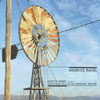Ravel Piano Concertos & Tombeau de Couperin
Not only a virtuoso, Sermet extracts every ounce of poetry from Ravel's two [concerto] concertos
View record and artist detailsRecord and Artist Details
Composer or Director: Maurice Ravel
Label: Valois
Magazine Review Date: 4/2000
Media Format: CD or Download
Media Runtime: 58
Mastering:
DDD
Catalogue Number: V4858

Tracks:
| Composition | Artist Credit |
|---|---|
| Concerto for Piano and Orchestra |
Maurice Ravel, Composer
Emmanuel Krivine, Conductor Hüseyin Sermet, Piano Lyon National Orchestra Maurice Ravel, Composer |
| Concerto for Piano (Left-Hand) and Orchestra |
Maurice Ravel, Composer
Emmanuel Krivine, Conductor Hüseyin Sermet, Piano Lyon National Orchestra Maurice Ravel, Composer |
| (Le) Tombeau de Couperin |
Maurice Ravel, Composer
Emmanuel Krivine, Conductor Lyon National Orchestra Maurice Ravel, Composer |
Author: Bryce Morrison
The catalogue boasts many outstanding performances of the Ravel concertos but few more effortlessly at the heart of the matter than those of Huseyin Sermet and his French colleagues. Totally without that glossy and impersonal brio that so often passes for authenticity (and which can afflict even the most celebrated performances of these works), there is delight in Ravel's consummate genius and a refusal of all hard-hearted extravagance or personalised overlay. Sermet is memorably limpid and affectionate in the G major Concerto's central Adagio assai, with its distant memory of shimmering halcyon summer days. And if his performance of the Left-Hand Concerto shows no want of virtuosity, he rejoices in its oases of calm and bittersweet reflection (never more so than in the closing cadenza, where the melody rides proudly and defiantly above Ravel's soaring and dipping figuration). Sermet's poetic strength and inwardness make the final, cataclysmic gesture all the more menacing and prophetic: 'the end', as Marcel Marnat puts it in his lengthy and fascinating note, of 'a short but vehement piece expressing the tragedy and fears of a man who had been mutilated (the Concerto is dedicated to Paul Wittgenstein who lost his right arm in combat) and the small comfort of memories, soon swept away by the horrible visions of war.'
Ravel's transcription of four pieces from Le tombeau de Couperin makes a refreshing encore, particularly when so delicately textured and pointed by orchestra and conductor. Overall, this recording takes its place among (and arguably above) the finest couplings for these concertos, less self-consciously special than Zimerman, more piquantly individual than Lortie. The recordings are lucid and realistically balanced, and this is altogether a delectable issue.'
Ravel's transcription of four pieces from Le tombeau de Couperin makes a refreshing encore, particularly when so delicately textured and pointed by orchestra and conductor. Overall, this recording takes its place among (and arguably above) the finest couplings for these concertos, less self-consciously special than Zimerman, more piquantly individual than Lortie. The recordings are lucid and realistically balanced, and this is altogether a delectable issue.'
Discover the world's largest classical music catalogue with Presto Music.

Gramophone Digital Club
- Digital Edition
- Digital Archive
- Reviews Database
- Full website access
From £8.75 / month
Subscribe
Gramophone Full Club
- Print Edition
- Digital Edition
- Digital Archive
- Reviews Database
- Full website access
From £11.00 / month
Subscribe
If you are a library, university or other organisation that would be interested in an institutional subscription to Gramophone please click here for further information.




